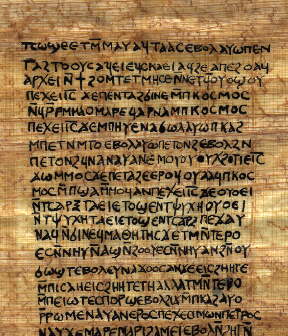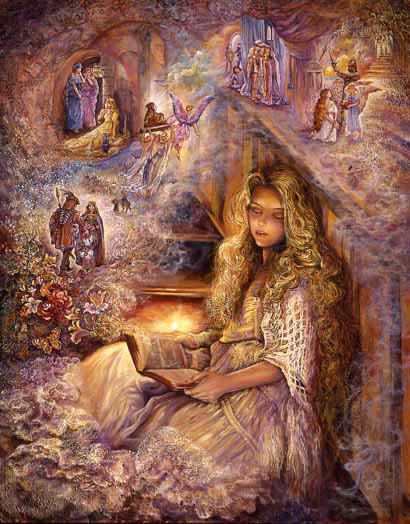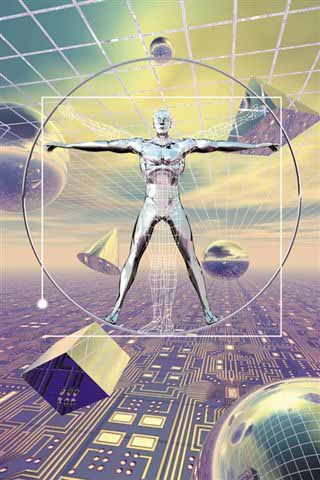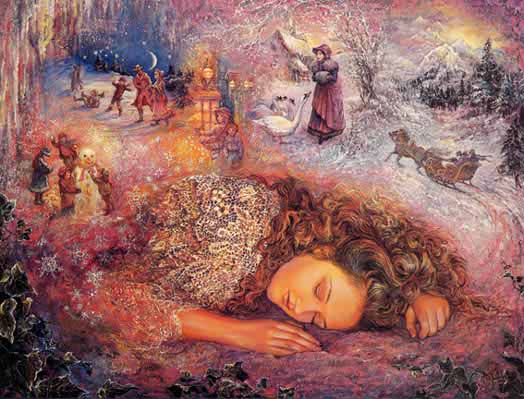-ћетки
-–убрики
- Personal (132)
- Research (129)
- ћаги€ танца (50)
- –учки- рючки :) (27)
- ƒневник снов (21)
- расота и здоровье (8)
- ћузыка (8)
- ¬дохновл€ющее (7)
- —новидени€ (6)
-¬идео

- ... сами боги...
- —мотрели: 34 (0)
-ћузыка
- Hidden Tribe
- —лушали: 90 омментарии: 1
-ѕодписка по e-mail
-ѕоиск по дневнику
-ƒрузь€
-ѕосто€нные читатели
-—ообщества
-—татистика
«аписи с меткой мистика
(и еще 31187 запис€м на сайте сопоставлена така€ метка)
ƒругие метки пользовател€ ↓
ats dance fusion rachel brice seiren tribe tribal zoe jakes абстрактное жизнь здоровье знание инди€ искусство йога каббала косметика костюм кошки красота лечение любовь маги€ мандала медитаци€ мистика музыка наука осознанность праздники практика притчи психологи€ реал религи€ секс смерть сновидение сон сфинкс таро ученичество учитель фильм фото хакеры сновидений хаос хна чакры энерги€ юмор
.√.ёнг. ƒиагностиру€ диктаторов. |
Ёто цитата сообщени€ —перанска€ [ѕрочитать целиком + ¬ свой цитатник или сообщество!]

¬ продолжение моих «гитлеровских синхроний». Ќашла любопытные материалы. »нтервью арла √устава ёнга. Ќекоторых, держу пари, его слова шокируют.
арл √устав ёнг "ƒиагностиру€ диктаторов"
Ќикербокер: „то произойдет, если √итлера, ћуссолини и —талина, всех вместе, закрыть на замок, выделив дл€ них на неделю буханку хлеба и кувшин воды? то-то получит все или они раздел€т хлеб и воду?
ёнг: я сомневаюсь, что они подел€тс€. √итлер как шаман будет, веро€тно, держатьс€ в стороне, не вв€зыва€сь в ссору.
ћуссолини и —талин, каждый по своему собственному праву вожд€ или сильного, будут, веро€тно, добиватьс€ обладани€ хлебом и водой, и —талин как более грубый и жестокий, веро€тно, получит все.
—уществовали два типа сильных людей в примитивном обществе. ќдин их них вождь, физически более мощный и сильный, чем все его соперники, другой - шаман, сильный не сам по себе, а в силу власти, спроецированной на него людьми. “аким образом, это император и глава религиозной общины. »мператор как вождь обладал физической силой благодар€ своей власти над солдатами; власть же €сновид€щего, которым €вл€лс€ шаман, не его физическа€, а реальна€ власть, которой он обладал вследствие того, что люди признавали за ним магическую сверхъестественную способность, могла временами превосходить власть императора. ќн мог, например, помогать или, напротив, строить преп€тстви€ на пути к счастливой жизни после смерти, мог объ€вить вне закона личность, общину или целую нацию и исключением из религиозной жизни общины обречь на лишени€ и страдани€.
ћуссолини человек физической силы. ”видев его, вы тотчас сознаете это. ≈го тело наводит на мысль о хороших мускулах. ќн лидер, потому что индивидуально сильнее любого из своих соперников. » действительно, склад ума ћуссолини соответствует его классификации, у него ум вожд€.
—талин принадлежит к той же самой категории. ќн, однако, не созидатель. ќн просто захватил то, что сделал Ћенин, вонзил свои зубы и пожирает. ќн даже разрушает нетворчески. Ћенин снес целую структуру феодального и буржуазного общества в –оссии и заменил ее своим собственным творением. —талин разрушает его.
— умственной стороны —талин не так интересен, как ћуссолини, которому он подобен в основном типе своей личности, и не имеет ничего общего с таким интересным типом, который представлен √итлером, типом шамана, человека-мифа.
Ќикербокер: “от, кто захватил власть над стасемьюдес€тью миллионами людей, подобно —талину, не может не заинтересовать, нравитс€ он вам или нет.
ёнг: Ќет, —талин именно животное - хитрый злобный мужик, бессознательный зверь, в этом смысле несомненно самый могущественный из всех диктаторов. ќн напоминает сибирского саблезубого тигра этой мощной шеей, этими разглаженными усами, этой улыбкой кота, слизывающего сливки. я могу предположить, что прежде —талин мог быть „ингисханом. ћен€ не удивит, если он сделает себ€ царем.
√итлер совершенно другой. ≈го тело не внушает представлени€ о силе. ¬ его облике прежде всего обращает на себ€ внимание полный сновидений, призрачный взгл€д. я был особенно поражен, рассматрива€ наброски, сделанные с него во врем€ чехословацкого кризиса; его глазами смотрит €сновид€щий.
¬о вс€ком случае не возникает сомнений в том, что √итлер принадлежит к категории действительно мистических шаманов. Ќичего подобного не приходилось видеть в атом мире со времен ћагомета - так кто-то отозвалс€ о нем на прошедшем Ќюрнбергском съезде партии.
¬ том, что √итлер поступает, как нам кажетс€, необъ€снимым и странным, алогичным и неразумным образом, про€вл€етс€ €вно мистическа€ особенность √итлера. » обратите внимание даже номенклатура нацистов откровенно мистическа€. ¬з€ть хот€ бы название нацистского государства. ќни называют его третий рейх. ѕочему?
Ќикербокер: ѕотому что первым рейхом была —в€щенна€ –имска€ импери€, второй был основан Ѕисмарком, третий создал √итлер.
ёнг: ¬се так. Ќо здесь более глубокий смысл. Ќикто не назвал королевство арла ¬еликого или державу ¬ильгельма первым и вторым рейхом. “олько нацисты назвали себ€ третьим рейхом. ѕотому что это имеет глубокое мистическое значение: в каждом немце выражение "третий рейх" вызывает в его бессознательном библейские ассоциации.
“аким образом, √итлер, который неоднократно показал, что осознает свое мистическое призвание, предстает дл€ фанатиков третьего рейха чем-то большим, чем простой человек.
ќбратимс€ теперь к широко распространенному возрождению культа ¬отана в третьем рейхе. то был ¬отан? Ѕог ветра. –ассмотрим название Sturmahteilung - штурмовые войска. Ўторм, как вы понимаете, ветер. “очно так же и свастика, вращающа€с€ фигура, образующа€ вихрь, с направлением движени€ всегда в левую сторону подразумевает в буддистском символизме пагубное, неблагопри€тное, ориентированное на бессознательное.
» все вместе, эти символы третьего рейха, вслед за его пророком под знаменами ветра и шторма и вращающихс€ вихрей направл€ют массовое движение, увлека€ немцев в урагане безудержных эмоций все дальше и дальше к судьбе, которую никто, веро€тно, даже он сам, €сновид€щий, пророк, фюрер, не может предсказать.
Ќикербокер: Ќо почему √итлер, который невольно заставл€ет каждого немца близ себ€ падать ниц, обожествл€€ его, не производит почти никакого впечатлени€ на иностранцев?
ёнг: —овершенно верно. ¬ообще-то некоторые отреагировали точно так же, как реагирует вс€кий немец в √ермании. Ёто происходит потому, что дл€ вс€кого немца √итлер €вл€етс€ зеркалом его бессознательного, в котором не дл€ немца, конечно, ничего не отражаетс€. ќн рупор, настолько усиливающий не€сный шепот немецкой души, что его может расслышать ухо ее бессознательного.
ќн первый человек, который поведал каждому немцу, какой тот все врем€ представл€ет и видит в своем бессознательном судьбу √ермании, особенно после поражени€ в мировой войне, и единой характерной особенностью, присущей вс€кой немецкой душе, €вл€етс€ типично немецкий комплекс неполноценности, комплекс младшего брата, который всегда немного запаздывает на пир. ¬ласть √итлера не политическа€, она магическа€.
Ќикербокер: „то вы подразумеваете под магической властью?
ёнг: „тобы пон€ть это, необходимо пон€ть, что такое бессознательное. Ёто часть нашей ментальной структуры, котора€ контролируетс€ нами в незначительной степени и в которой откладываютс€ вс€кого рода впечатлени€ и ощущени€, включа€ сюда мысли и даже заключени€, которых мы не осознаем.
ѕомимо впечатлений, которые мы воспринимаем, существуют вс€кого рода впечатлени€, посто€нно воздействующие на наши органы чувств, которых мы осознать не можем, потому что они слишком слабы, чтобы привлечь наше сознательное внимание. ќни воспринимаютс€ за порогом нашего сознани€. Ќо все эти сублимированные воспри€ти€ фокусируютс€, ничего не утрачиваетс€.
¬ то врем€ как мы беседуем здесь, кто-то может разговаривать едва слышным голосом в соседней комнате - ¬ы не обратите на это внимани€, но разговор за соседней дверью несомненно регистрируетс€ в вашем бессознательном, подобно нашему разговору, записываемому на диктофон. ¬ то врем€ как вы сидите здесь, мое бессознательное принимает о вас информацию, хот€ € ее не осознаю, и вы были бы удивлены, если бы € смог рассказать вам все, что € уже бессознательно узнал о вас за это короткое врем€.
—екрет власти √итлера заключаетс€ не в том, что eго бессознательное содержательнее, чем мое или ваше. —екрет √итлера дво€кий: во-первых, это исключительный случай, когда бессознательное имеет такой доступ к сознанию, и, во-вторых, он предоставл€ет бессознательному направл€ть себ€. ќн подобен человеку, который внимательно прислушиваетс€ к потоку внушений, нашептываемых голосом из таинственного источника, и затем действует в соответствии с ним. ¬ нашем случае даже если наше бессознательное изредка становитс€ доступным дл€ нас через сны, у нас слишком много рациональности, слишком много церебрума, чтобы подчин€тьс€ ему. “ак вел себ€, например, „емберлен; √итлер же слушает и подчин€етс€. »стинный вождь всегда ведом.
ѕопытаемс€ пон€ть, как это происходит. ќн сам обращаетс€ к своему голосу. ≈го голос есть не что иное, как его собственное бессознательное, в которое немцы спроецировали самих себ€; это бессознательное семидес€ти восьми миллионов немцев. Ёто то, что делает его могущественным. Ѕез немцев он, веро€тно, не казалс€ бы таким, каким предстает сейчас.
Ёто буквально соответствует истине, когда он говорит, что если он на что-нибудь способен, то только потому, что за его спиной стоит немецкий народ, или, как он иногда говорит, потому, что он есть √ермани€. ѕоэтому с его бессознательным, €вл€ющимс€ вместилищем душ семидес€ти восьми миллионов немцев, он могуществен, и с его бессознательным воспри€тием действительного соотношени€ политических сил у себ€ и в мире он до сих пор остаетс€ безошибочным.
¬от почему политические решени€, которые он принимает, оказываютс€ верными вопреки мнени€м всех его советников и вопреки мнени€м всех иностранных обозревателей. ¬с€кий раз, когда это происходит, это означает только, что информаци€, собранна€ его бессознательным и достигающа€ сознани€, благодар€ его исключительному дару оказываетс€ более верной, чем у всех других, немцев и иностранцев, пытавшихс€ оценить ситуацию и пришедших к иным, чем у него, выводам. » конечно, это означает, что, име€ эту информацию в своих руках, он должен быть готов действовать в соответствии с ней.
ћетки: жизнь психологи€ нацизм мистика |
Ўизофрени€. »ной взгл€д. |
Ёто цитата сообщени€ ћирцающа_€ [ѕрочитать целиком + ¬ свой цитатник или сообщество!]
»з книги Ѕ. ”олкера "«а пределами тела".
" сенофрени€ (странные состо€ни€ сознани€) драматически выражаетс€ в различных формах безуми€. ћногие умственные расстройства остаютс€ тайной, и психиатрии приходитс€ еще многое в ней изучать. “ипичным примером €вл€етс€ шизофрени€. ѕодобно истерии и эпилепсии, пока не существует абсолютно точного определени€ шизофрении. Ўироко известный психиатр д-р “омас —. «аш утверждал, что «шизофрени€ — это псевдопроблема».
—уществует много разновидностей шизофрении и большинство из них — это сосредоточенность на самом себе и потер€ контакта с внешним миром. ѕациент может страдать от паранойи и при этом иметь иллюзии величи€ и преследовани€. — оккультной точки зрени€ шизофрени€, подобно многим другим видам безуми€, представл€ет собой патологическое условие второго тела. јстральный мир начинает свое вторжение в бодрствующее состо€ние. ѕациент слышит голоса, чувствует невидимые вли€ни€ и поступает в соответствии с настойчивыми внутренними командами. ≈го тело принимает странные позы, которые он сохран€ет без движени€ в течение нескольких часов. Ќекоторые из этих статических поз имеют свои прототипы: они встречаютс€ у индийских аскетов и йогов".
|
ћетки: психиатри€ лечение болезнь жизнь наука мистика знание |
стати о птичках :)) |
ƒневник |

√аргульи от старофранцузского gargouille - глотка, и своим звучанием имитирует булькающий звук, возникающий при полоскании горла. Ёто драконовидна€ зме€, согласно легенде обитавша€ во ‘ранции, в реке —ене. ќна с огромной силой извергала воду, переворачива€ рыбацкие лодки и затопл€€ дома. —в€той –оман, архиепископ –уана, заманил еЄ, усмирил с помощью креста и отвЄл в город, где еЄ убили горожане. ѕервые гаргульи еще XII-XV в. устанавливались около водостоков, в качестве направл€ющей дл€ воды - по средневековым поверь€м - охранные статуи, которые устанавливались дл€ украшени€ многих замков , храмов, соборов и прочих строений готического стил€. ак безжизненна€ каменна€ стату€ может охран€ть что-нибудь? —читаетс€ что при опасности и по ночам горгули могли оживать...

ћетки: мистика |
Ѕиблиотека Ќаг ’аммади |
ƒневник |


ЂЅиблиотека из Ќаг-’аммадиї Ч собрание рукописных книг (кодексов), изготовленных из папируса, которое было обнаружено в конце 1945 года в районе селени€ Ќаг-’аммади (≈гипет). “ексты в этих книгах написаны на коптском €зыке, разговорном €зыке Ёллинистического ≈гипта, и €вл€ютс€ переводами с греческого. одексы были изготовлены в начале IV в. н. э., но сами тексты датируютс€ гораздо более ранним сроком: IЧIII вв. н. э.
Ѕиблиотека из Ќаг-’аммади состоит из 12 кодексов и нескольких листов из 13-го кодекса. —ейчас книги этой библиотеки хран€тс€ в аирском музее. ≈сть предположение, что один из кодексов попал в частное собрание и недоступен дл€ учЄных.
Ѕиблиотека из Ќаг-’аммади содержит, в основном, тексты гностического христианства в его Ђпозднем вариантеї. ѕредположительно, кодексы принадлежали монахам из первого христианского монастыр€, основанного св. ѕахомием. Ќа это указывают письма сподвижников ѕахоми€, из которых были изготовлены обложки кодексов; место, где найдена библиотека, находитс€ всего в нескольких километрах от монастыр€; врем€ захоронени€ кодексов (конец IV в. н. э) совпадает с указом александрийского митрополита јфанаси€ об уничтожении неканонических текстов. (¬ики)
Ќайденные в Ќаг ’аммади книги включают в себ€ христианские религиозные тексты, герметическую магию, рассуждени€ о морали, апокрифические тексты и, что довольно интересно, переработанный текст "–еспублики" ѕлатона.
ќгромна€ ценность и значение этих книг с точки зрени€ изучени€ истории философии и раннего христианства дополн€етс€ их ценностью как собственно исторических пам€тников (по сути это самые древние из известных нам книг), так и рукописей дл€ изучени€ оптской палеографии.
“ем не менее, изучение этих книг сопр€жено с огромными трудност€ми, поскольку мы не знаем ни их авторов, ни места написани€, ни обсто€тельств, при которых они были написаны.
Ёти же книги могут рассматриватьс€ сегодн€ как исключительно важный элемент в исследовании раннего периода гностицизма.
¬ содержащихс€ в этих книгах религиозных (или гностических) текстах интерпретаци€ христианских ритуалов значительно отличаетс€ от официальной версии, установленной в 325 году, что с самого начала было отвергнуто церковью, как ересь. »менно поэтому, чтобы спасти их от уничтожени€, так называемые неортодоксальные общины собрали и спр€тали все манускрипты.
√носис означает знание. ¬ этом отношении гностики отличались от ранних христиан тем, что в св€щенных текстах придавали гораздо большее значение их эзотерическому смыслу, чем историческому и, соответственно, считали, что божественное включает в себ€ также внутреннее или тайное знание, передаваемое от поколени€ к поколению в традици€х или использу€ обр€ды инициации.
¬ текстах библиотеки Ќаг ’аммади мы находим множество свидетельств о существовании гностических школ, основанных на тайном учении, которые, тем не менее, врем€ от времени обращались к заповед€м ¬етхого завета.
¬ этой коллекции мы также находим так называемые герметические книги, написанные в строгом соответствии с традици€ми орпус √ерметикум, древнего собрани€ книг по герметической магии.
одекс VI, например, включает в себ€ безым€нную монографию, известную как “рактат ¬осьмой и ƒев€тый, благодарственную молитву и большой фрагмент —овершенного –ассуждени€. ƒва последних текста мы частично находим в јсклепии, тогда как первый €вл€етс€ полностью оригинальной работой.
Ёти тексты не совпадают по духу с остальными манускриптами, где основными €вл€ютс€ идеи гностицизма. Ќо они интересны тем, что в отличие от греческих и латинских текстов, имеют €рко выраженное египетское происхождение. Ѕолее того, они даже не отвергают древнеегипетскую религию, а предлагают лишь одухотворить ее. √ерметизм - это нечто большее, чем религиозна€ система, внешне похожа€ на христианство. Ёто скорее путь.
Ёти три текста, дополн€€ друг друга, дают достаточно четкое представление о герметической доктрине как о некоем пути, который через посв€щение ведет к божественному просветлению. «десь мы видим принципиальную разницу между христианами и гностиками (или герметиками). ’ристианство опираетс€ на историческую правду, тогда как гностики и герметики придают исключительно большое значение символизму и даже аллегори€м.
ќтсюда
ћетки: знание мистика христианство |
ћевлеви. ружащиес€ дервиши. |
ƒневник |
¬от что пишет ¬ики:
ћевлеви Ч суфийский тарикат, основанный в XIII веке в “урции –уми. ќтличительной особенностью ћевлеви €вл€етс€ практика ритуальных танцев с целью достижени€ единства с Ѕогом.
ќбр€ды мевлеви представл€ют собой довольно сложный ритуал. ќн состоит из декламации стиха во славу ѕророка, музыкальных импровизаций и исполнени€ Ђверт€щегос€ї танца, за этим идет втора€ часть из четырех музыкальных и танцевальных разделов, именуемых селам, которые завершаютс€ инструментальной музыкой и рецитацией орана вместе с творением молитв. ƒервиши по€вл€ютс€ в белых продолговатых колпаках из войлока, имеющих среднеазиатское происхождение, и с черными накидками; эти накидки сбрасываютс€ во врем€ танца, и дервиши предстают в белых оде€ни€х. “ака€ смена одежд истолковываетс€ как смерть и воскресение. ѕри вращении дервиш держит правую руку обращенной к небу, а левую Ч к земле. ƒвижени€ поначалу медленные и величавые с постепенным ускорением в такт музыке, но никогда они не станов€тс€ бесконтрольными.
ƒервиши кружатс€ отдельно, не каса€сь друг друга плечами, каждый вокруг своей оси и вокруг шейха и других дервишей. ќни не произнос€т ни звука, не производ€т никаких движений ладон€ми или головой. ѕослушники ћевлеви подвергаютс€ долголетнему самоотречению, самоист€занию, и тренировке в сема. —осто€ние транса, которое вводит сема, находитс€ отдельно от познани€ и общени€ с Ѕогом. Ѕекташи осмеивали танец ћевлеви как ненужный придаток к поклонению Ѕогу. –уми верил, что дух освобождаетс€ от т€жести плоти в процессе сема и ликование человеческого существовани€ как чувств и мыслей может быть достигнуто только мастерством в сема. —ема также можно заниматьс€ в одиночестве, но обычно дервиши исполн€ют сема вместе в полночь в семахане или зале ханаки. ƒервиши, ответственные за исполнение ритуала, покрывают пол в семахане овечьими шкурами, символизирующими обр€д шейха. ќдетые в белые одежды с широкими юбками, называемыми теннуре и в высокие шапки, дервиши совершают свои молитвы после того, как получают знак в виде по€влени€ шейха в зеленом головном уборе. ѕосле чтений из ћесневи и орана, один из дервишей начинает играть на нэе, старинной камышовой флейте, чь€ заунывна€ музыка ассоциируетс€ только с тарикатом ћевлеви.
ћетки: музыка жизнь мистика знание dance суфии ученичество |
ѕомни!! |
ƒневник |
Ќапрасно ты винишь в непосто€нстве рок,
„то не в накладе ты, тебе и невдомек,
огда б он в милост€х своих был посто€нен,
“ы б очереди ждать своей до смерти мог.

ћетки: мистика |
јмериканское шоу |
ƒневник |
„асть 1
„асть 2
„асть 3
ћетки: жизнь мистика ложь |
—новидени€. „асть 3. |
ƒневник |
Greece

The earliest Greek view of dreams was that the gods physically visited dreamers, entering through a keyhole, and exiting the same way after the divine message was delivered.
The fifth century BC marks the first known Greek book on dreams, written by Antiphon, an Athenian statesman.
During this century, the Greeks developed the belief (through contact with other cultures) that souls left the sleeping body.
Hippocrates (469-399 BC), the father of medicine and Socrates' contemporary, wrote On Dreams. His theory was simple: during the day, the soul receives images; during the night, it produces images. Therefore, we dream.
Aristotle (384-322 BC) thought that dreams could be indicators of conditions within the body. He did not believe they were divinely inspired. He hypothesized that external stimuli are absent during sleep, so dreams are manifestations of a profound awareness of internal sensations which are expressed as dream imagery.
Galen, a Greek physician born in 129 AD, emphasized the need to observe dreams carefully for clues to healing. He was so trusting of dream messages that he carried out operations on the basis of his dream interpretations.
Artemidorus, his contemporary, wrote on The Interpretation of Dreams (Oneirocritica). describes this as the "best source we have for the dream interpretation practices of antiquity." His theory is extensive, but within the five books he wrote, he describes two classes of dreams: somnium, which forecasts the future; and insomnium, which deal with contemporary matters and are affected by the state of the body and mind. He stated that the dream interpreter should have information about the dreamer including:
1. Images that are natural, lawful and customary for the dreamer
2. Circumstances at the time of the dream
3. Dreamers occupation and personality
Healing, Incubation
The practice of dream incubation was at least as important to the Greeks as it was among Mesopotamians, Egyptians, and Chinese.
Dreams also aided in their practice of medicine, sending sick people to particular temples in those places where the "gods of the body" had their shrines. The ailing Greeks would visit these temples, perform various religious rites, sleep, and hope to have a dream that assured a return to good health. Night after night they would sleep and sometimes this would go on for weeks or even months until they had the "right" dream. The most famous for dream pilgrimage was the Aesculapius at Epidaurus.
Aesculapius was a Greek healer who was believed to be the son of Apollo. He was linked with cults that began the practice of dream incubation. Aesculapius visited sleepers, miraculously curing them.
A shrine to Aesculapius was established at Epidaurus in the fifth century BC. It may still be visited today.
There are thought to be around 410 Aesculapian sanctuaries near Athens, generally being active from the sixth century BC until the third century BC.
Prophecies would also be given through dreams to those who slept in dream temples or shrines.
Almost like initiations of the ancient mystery school teachings, certain would go to the temple, where they would purify themselves first by making an offering to the Gods. Sometimes there was an animal sacrifice such as a ram, its fleece removed and then used as a sleeping mat inside the temple.
The magistrates of the city also used the temple to receive answers to difficult questions.
China
Chinese considered the dreamer's soul to be the guiding factor of dream production.
The hun, or spiritual soul, was thought to leave the body and communicate with the land of the dead.
They also practiced incubation in dream temples.
These temples served a political purpose through the 16th century.
Any high official visiting a city reported to a temple the first night to receive dream guidance for his mission.
Judges and government officials were also required to visit dream temples for insight and wisdom.
Hindu, India

God spoke to the dreamer.
The time when a prophetic dream occurred indicated when the event will take place.
The Sacred Books of Wisdom, or Vedas, were written in India between 1500 and 1000 BC.
In the Vedas, dreams of violence were thought to lead to success and happiness if the aggression was pro actively handled in the dream, even if the dreamer gets hurt in the process.
If the dreamer remains passive and becomes hurt by his own passivity, however, it was considered a bad omen.
Van de Castle (1994) states that these dreams might be more indicative of the dreamer's character than prophecy, since "those who take an active role in their dreams are likely to be more active, and therefore, more successful, in their daily lives"
The Upanishads, written between 900 and 500 BC, articulates two perspectives on dreams. The first maintains that dreams are merely expressions of inner desires. The second closely resembles the Chinese belief of the soul leaving the body and being guided until awakened. It was also thought that if the sleeper was awakened abruptly, the soul might not return to the body quickly enough and the sleeper could die.
ќкончание статьи
ћетки: наука жизнь маги€ мистика сновидение сон |
—новидени€. „асть 2. |
ƒневник |
External & Internal Factors That Affect Dreams While Sleeping

Just about anything external or internal can be incorporated in your dreams and influence the events. Sometimes the influences are positive while other times they create fear and panic as they are warnings.
- Crystals can enhance dream state in many ways, depending on the type of crystal and how it is used. It can be placed near your, under the pillow, or worn.
- Books ≠ Photos,
- Audio tapes or other recordings playing while you sleep
- Music
- Sound Machine that creates a soothing noise, water, white noise, other
- Astrological Influences, Moon, Depends on your chart
- Scents, Herbs
- Health issues
- Diet
- Chemicals in the Body
- Emotional Issues
- External stimuli while you are sleeping, Ex. It is raining heavily outside, so water could be incorporated in your dream. The soul can take information from anything it is experiencing and incorporating it into your dream.
- Events occurring prior to going to sleep: Media (TV, Radio, Video), something you have read, a conversation, or other physical activities can impact on your dreams
Before and After Dreamtime
As reality is programmed illusion, you can preset your programming for dreamtime, before you go to sleep.
The power of suggestion often works when it comes to dreams.
If you want to remember at least one dream, tell yourself that before going to sleep.
If you do not want to have scary dreams, before you go to sleep, mentally state that, I do not want to have scary dreams. This is good to do when your life is in turmoil.
If someone is attacking you in dreamtime, tell your spirit guides to protect you, and never allow that person near you. Example: An old lover who wants to contact with you in dreams.
It is often helpful to review the events of your day before going to sleep, as if watching a movie. This is helpful if you wish to work out issues during dreamtime.
After you wake up, it is best to remain still and focus on your dreams experiences.
Remembering & Interpreting Dreams

We dream in a higher frequency of thought and light than our physical experience. Therefore when we slow down our frequency as we return to our conscious awareness to the physical mind and body, we often do not have the means to understand what occurred in dreamtime.
Once consciousness enters, the physical mind, we return to the 'realms of forgetfulness' about who we are and the nature of a soul's experiences. Our thought processes move too slowly. Many view the physical as the dreamtime, as a result, as we are no longer aware. they see reality as a dream.
Some people remember their dreams while others have little or no recognition.
Dreams help you work out issues. Emotions can distort memory. We often do not remember dreams because we do not wish to deal with the issues addressed.
Most people remember what I call 'wake-up dreams.' As your consciousness returns to the physical mind, it slows down to a frequency where it become aware of something that is occurring on the other side that it wishes to remember. You wake up and you remember, if only for few minutes as your consciousness slowly returns to physical frequency. It is then you must record your dream information before the events are lost in time.
Dream Journal, It often useful to keep a dated journal of your dreams. Keep it by your bed. Write the notes in the journal as soon as you 'wake up.' You may not understand their content until later. using a tape recorder is also advisable.
Interpreting Dreams, Interpretation of dreams often vary. One must know about the dreamer and what is going on around them if this is a personal dream. If it is a universal dream, it may be more easily understood. For example, a friend of mine dreamed about the Twin Towers in Manhattan being engulfed in water and collapsing. He dreamed this over and over again but did not understand its full meaning until the events of 9/11 occurred several weeks later. He is a fireman. He saw the water from the hoses. He lost many friends on 9/11.
Some dreams are exact in content while others are metaphoric. Most dreams have symbols.
Your mind can only process the events in the dream based on symbols it understands. If you experience a dream that is not within the vocabulary of your mind, you will not be able to process and remember it. The physical mind has to be able to make sense of a dream, for you to remember it. It's like a young child being taught calculus. It has no way of understanding, and therefore processing or interpreting what it is being shown, so it forgets what it sees.
In dreamtime you generally receive messages in symbols or archetypes whose meaning you must later discover. This is not unlike messages received in meditations or other states of altered consciousness.
Here is an example, You dream about 'keys.' Keys open locks, doorways. Something new will be shown. You must then look at the number of keys given, the metal of which they were made, and anything else given in your dream related to these keys, such as ... who gave them to you.
Death in a dream does not necessarily mean a physical death in as much as a transformation, old giving way to something new and better.
A Dream Dictionary is often helpful in deciphering symbols as well as searching the internet for the symbolic meaning of that which has been shown to you.
Asking for Guidance, What I have discovered about myself is that when I am uncertain about an issue I go to sleep and ask for guidance.
Sometimes I am shown events in a dream that I remember and help me focus.
Other times, I don't remember the dream when I wake up, but I know I have processed the information and know what the solution is. I often wake up with feelings of closure about issues. My soul has made the decision that is best for me in third dimension.

„итаем дальше про шумеров, австралийских аборигенах и прочих
ћетки: наука жизнь маги€ мистика сновидение сон |
—новидени€. „асть 1. |
ƒневник |

In truth everything is a dream/programmed illusion/virtual reality experience created by a consciousness source of light which set up layers/dimensions/grids/matrixes through which the souls experience simultaneously. These programs follow patterns called Sacred Geometry and repeat in loops, creating the illusion of linear time.
In the slower frequency movement of third dimension, one experiences linear time. As one moves their conscious awareness into dreamtime, released from the physical body, grid of experience, physical body, one experiences with time, and is able to move from grid program to grid program, in what often appears as 'flying'.

The soul is able to consciously able to view one or more grid programs at the same time, splitting the consciousness, moving in hyperspace, quantum physics, with a greater understanding of the dynamics of its total experiences.
While in a physical body, it takes most of your conscious effect to focus on events around you, as they are guided by emotions, the duality of the physical experience, which is bi-polar. This mirrors swings in emotions and constant changes in environment as all grids are in flux. In the physical, the goal is always to create balance and stability. Many dreams are laced with emotions masking their true meaning.

A dream can warn us of potential danger.
Frequently things that trouble us crystallize in a dream.
Everyone who sleeps, dreams, including animals.
When you take a nap, you are ten times more likely to remember your dreams.
On average, we sleep for a third of each day. Take your age and divide it by 1/3 and you will know how many years you have been asleep, on the other side, in this lifetime. For example, if you are 30 years old, you have slept for 10 years.
Many dreams bring messages, some part of your soul's evolution. Dreamtime is often a place of transformation for the soul where it awakens afterward enlightened about the next step on its journey into awareness. This is a time where the soul and mind process the path of the questor who returns in higher frequency of thought and personal mission.
If you can perceive of your dreams as projected illusion, in which you are experiencing and learning, then so too shall you look upon your experiences in the physical, and unlock the mysteries of humanity.
From the point of view of dreamtime and other realms of conscious awareness, our reality is but a projected illusion in linear time.
... Dream well, my child ...

ѕродолжение
ћетки: наука жизнь маги€ мистика сновидение сон |
ћистическое искусство |
ƒневник |
Sergei Chernenko works are compelling reflections of misticism that enter a realm of vibrant abstraction,intricate depiction,and incandescence.
His canvases are filled with extraordinary figures and fantastic landscapes , illuminating a rich inner vision they characterise the unknown mysteries of existence and memorable vivid new worlds
His meticulous brushworck and brilliant use of light show an intimacy with Goya , Breugal,and Rembrandt, while the imaginative panorama of subject matter suggest the strong influence
of the more mystic surrealists , Bosch , Dali , and De Chirico.
„итать про художника дальше

≈ще работы
» много-много потр€сающего и интересного тут
» тут
ћетки: жизнь искусство мистика |
| —траницы: | [1] |







